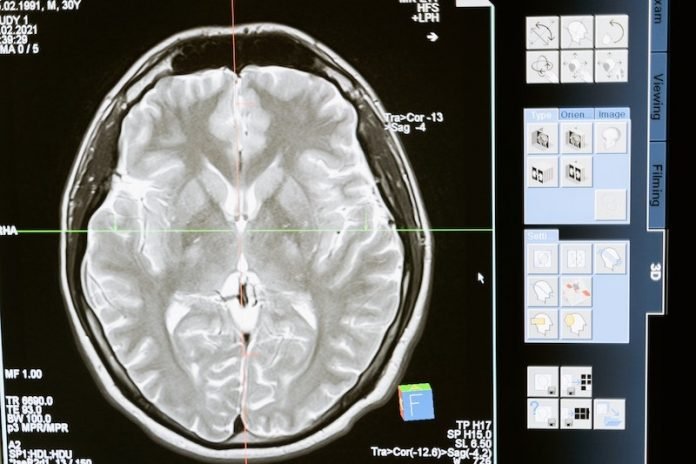
Scientists from Konkuk University found that the increased volume of an important structure in the brain called the choroid plexus is linked to greater cognitive impairment and Alzheimer’s disease.
The research is published in the journal Radiology and was conducted by Won-Jin Moon et al.
The choroid plexus is a network of blood vessels, connective tissue and cells found in spaces of the brain called ventricles. The plexus plays an important role in brain health.
It is a gateway for immune cells from the blood to the brain. As the primary site for the production of cerebrospinal fluid, it is crucial to clear waste products and toxic proteins from brain cells.
This role is particularly important in the case of Alzheimer’s disease.
Recent research suggests that disease progression is related to the accumulation of abnormal proteins called amyloid and tau and subsequent degeneration of the nerves.
In the study, the team performed brain MRI on 532 participants at various stages of cognitive impairment. Of the 532 participants, 132 underwent permeability imaging using dynamic contrast-enhanced MRI.
The team found that choroid plexus volume and permeability were linked to the severity of cognitive impairment on brain MRI.
Choroid plexus volume was greater in those with Alzheimer’s dementia than in those without. Higher choroid plexus volume was negatively linked to memory.
It also had negative effects on executive function, a wide-ranging set of mental skills governing things like self-control and planning.
The findings found that the enlarged choroid plexus volume is independently associated with increased cognitive impairment.
The study results also point to new possibilities for MRI’s role in the diagnosis of Alzheimer’s disease.
If you care about Alzheimer’s disease, please read studies about the cause of memory loss in Alzheimer’s disease, and brain damage could be stronger in COVID-19 than in Alzheimer’s disease.
For more information about brain health, please see recent studies about diet that may prevent or even reverse Alzheimer’s disease, and this low-carb diet could help reverse brain aging.
Copyright © 2022 Knowridge Science Report. All rights reserved.



